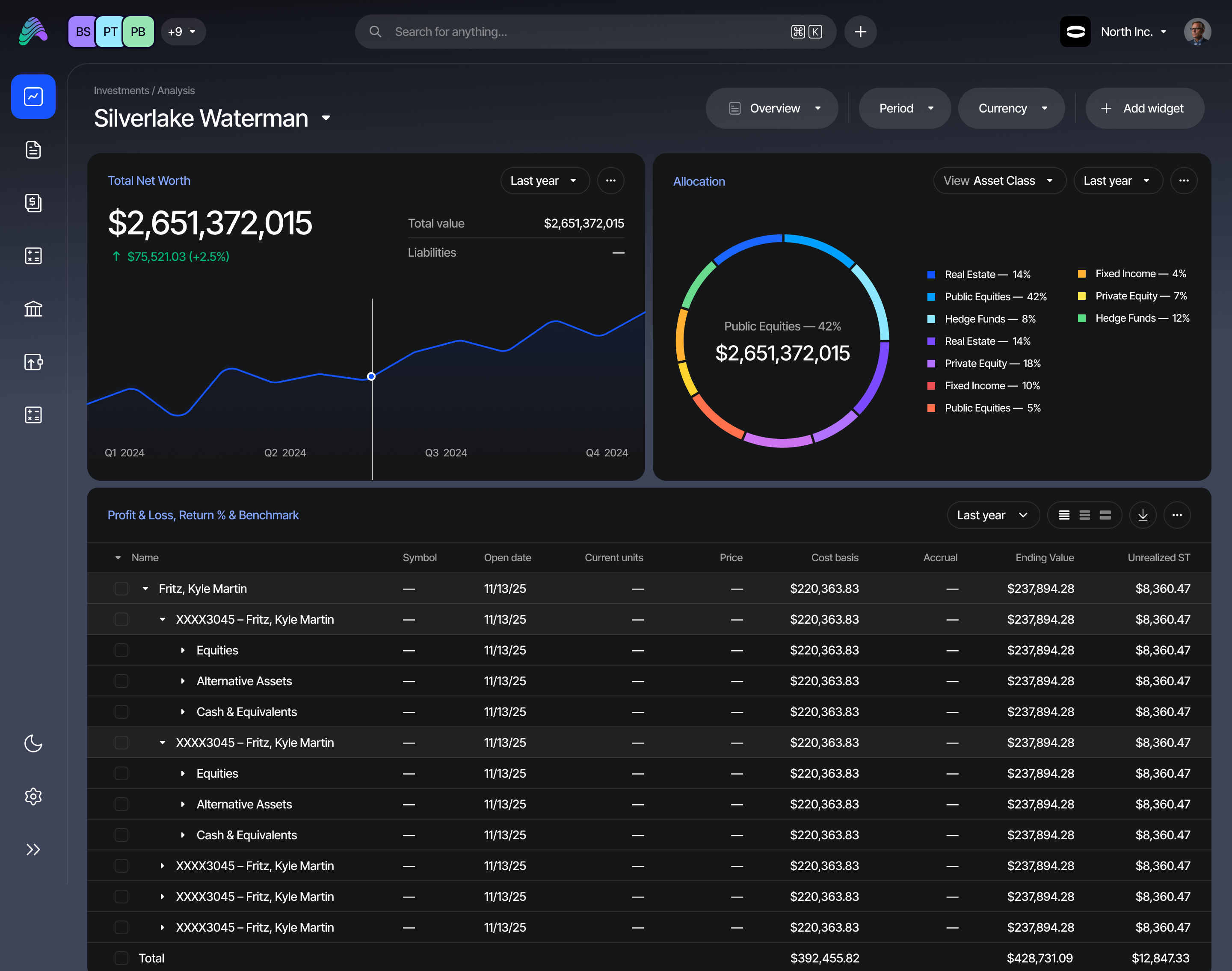When we picture the world of ultra-high-net-worth families and their finances, it's easy to imagine a realm governed strictly by cold, hard numbers, complex charts, and the latest market analytics.
But if you peel back the layers, as the latest UBS Global Family Office Report 2025 does, you find a much richer, more human story.
Yes, sharp financial strategy is front and center, but it's intertwined with something less tangible: a powerful "human element."
Think trust, a commitment to a long-term vision, and an impressive ability to adapt. These are the qualities that are truly steering family offices through today's ever-shifting global landscape.
This isn't just any survey. UBS talked to 317 of their family office clients globally – we're talking families with an average net worth of $2.7 billion, whose offices manage a cool $1.1 billion each. The report gives us a real insider's look at how they're investing, how they view risk, how they run their operations, and the often-tricky business of passing wealth to the next generation. So, what are the big takeaways?
1. Keeping a Steady Hand on the Tiller: The Long Game Wins Out
In a year that's already thrown its share of curveballs – "increased volatility, global recession fears and following a near unprecedented market sell-off in early April" 2025, as the report puts it – you might expect some panic.
But family offices? They're largely holding steady. Their main goal hasn't wavered: play the long game to protect and grow wealth for generations to come.
Even with a "global trade war" flagged as the top risk (before the latest US tariff news even broke!), follow-up chats confirmed they're sticking to their diversified, all-weather plans. It really speaks to their resilience and their knack for looking past the day-to-day market noise.
2. Smart Money Moves Slowly
While the big picture of how they split money between traditional and alternative investments hasn't dramatically changed, there are some interesting undercurrents:
- Setting Sights on Developed Markets: There's a clear lean towards equities in developed markets. Why? They're likely chasing long-term growth, especially in hot areas like generative AI and healthcare. We saw average allocations tick up from 24% in 2023 to 26% in 2024, and those tweaking their plans in 2025 are aiming for 29%.
- The Pull of Private Debt: This is an area that's really taken off. Average allocations actually doubled from 2% in 2023 to 4% in 2024. It seems the hunt for better yields and another way to diversify is driving this, with plans to nudge it up to 5% for those making changes in 2025.
- Cash on the Move, A Pause on Private Equity: Less cash is sitting idle (down from 10% in 2023 to 8% in 2024) as it gets put to work elsewhere. And after a good run, private equity allocations saw a slight breather, dipping from 22% in 2023 to 21% in 2024. The long-term vibe is still positive, though.
- America First (for US Family Offices): This was a standout. US family offices are doubling down on their home turf. They've "virtually withdrawn from international markets over the last five years" and are now putting a hefty 86% of their portfolios into North America.
- Emerging Markets? More Like "Treading Carefully": Globally, there isn't a huge rush into emerging market stocks (4%) or bonds (3%). US and European offices are particularly cautious. That said, India and Mainland China are on the radar for some as places they might increase their stake.
3. What's Keeping Them Up at Night?
When asked about immediate worries for 2025, a "global trade war" was the big one for 70% of these offices. But fast forward five years, and their anxieties shift. They're more concerned about major geopolitical conflicts (61%), a global recession (53%), and the possibility of a debt crisis (50%). So, how are they bracing themselves? Smart manager selection and active management are key (40%), along with hedge funds (31%), and, interestingly, a growing number are turning to precious metals (19%) to spread their risk.
4. Tech, AI, and the Future of Operations
Family offices aren't just watching the tech revolution from the sidelines; they're figuring out how to get in on the action, both as investors and as businesses:
- Hot Tech on Their Radar: Healthcare and medicine are big (35% already have a clear strategy here), as is electrification (29% have a plan). And it's no surprise that generative AI and the broader energy transition are also sparking a lot of interest.
- AI Isn't Just for Investing: It's set to shake up how these offices actually run. Looking ahead, many see AI playing a big role in financial reporting and data visualization (69% expect to use it), text analysis (like summarizing those dense legal docs – 64%), and even sophisticated portfolio analysis (62%).
- Who Wins with AI? They're betting that banks and financial services (75%) along with pharma and biotech (65%) will be some of the biggest beneficiaries of the AI boom.
5. It's Still About People
This is where the "human element" really shines through, and it's fascinating:
- Hiring: It's More Than a Resume: When bringing new people on board, what do family offices value most? It's not just about the fancy degrees or a long list of qualifications (though those matter). An overwhelming 72% said "trust" is crucial, and 73% emphasized the "right personality." It really drives home how personal and relationship-focused these operations are.
- Passing the Baton: A Work in Progress: Succession planning is a perennial topic. While more families have plans in place (up to 53%), that still leaves a big chunk without one. The main holdup? Often, the current wealth holders just don't see it as an urgent priority or feel they've got plenty of time. For those who do have plans, the biggest headache is making sure wealth is transferred in the most tax-efficient way (64%). And here's a critical point: the report found that less than a third (26%) actually brought the next generation into the conversation from day one, which could be storing up trouble down the line.
Looking to the 2026 and Beyond
What the UBS Global Family Office Report 2025 really shows us is that these are unique organizations – part sophisticated financial engine, part deeply personal family endeavor. They're steering through a world that's changing at lightning speed, not by chasing every new trend, but by sticking to their long-term principles while smartly adapting how they invest and operate. Their growing interest in new growth areas, their careful steps into new technologies, and the huge weight they place on trust and personal connections – these are the things that will likely define their journey in the years ahead. As they work to build bridges between generations and protect what they've built, their real skill will lie in that delicate dance between sharp analysis and genuine human insight.


.svg)







.png)
%20(1).png)
.png)


.png)
